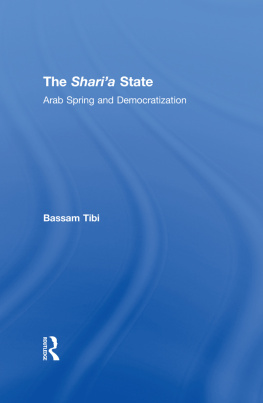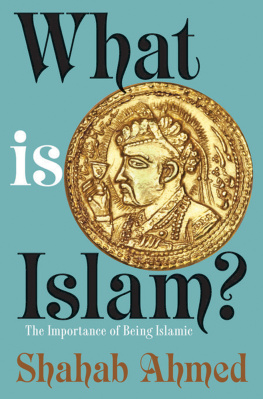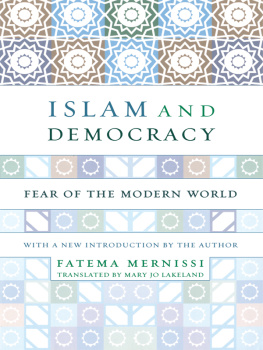Preface
W ell, that didnt take very long. On August 12, 2012, six weeks after being elected president of Egypt, Muslim Brotherhood leader Mohamed Morsi forced the resignations of the generals atop the ruling military junta. Effectively, his election has converted Egypt from a military dictatorship to a sharia dictatorship. As this book argues, that is the end to which Islamic democracy leads.
Although most of the manuscript of Spring Fever: The Illusion of Islamic Democracy was in the can by the late Spring of 2012, I delayed completing it until July. The Egyptian presidential election, such a big part of the Arab Spring story, was not decided until late June. The presidential election followed hard on both a national referendum on constitutional amendments and the parliamentary elections, all won by the Muslim Brotherhood and its fellow Islamic supremacists in lopsided fashion. Islamic democracy enthusiasts ascribe great significance to elections, taking them to mark real democratic progress, regardless of how bereft of real democratic culture the voting society is. It thus made sense to see through the historic electoral process before publishing this book.
Spring Fever, after all, is meant to be your antidote for the obsession that has become conventional American wisdom: the obdurate portrayal of the Arab Spring as a triumph of freedom. In reality, it is the ascendancy of Islamic supremacism. It follows a predictable path toward Islamization already trod in Turkey. The pattern is certain to proceed much more rapidly in the Muslim Middle East, which, unlike Turkey, has never sought to Westernize or to suppress Islams supremacist tendencies.
In Egypt, the tension mounted this summer as the Supreme Council of the Armed Forces (SCAF), the military junta that seized control after Hosni Mubaraks fall from power, permitted the presidential election to go forward. By then, it was manifest that the Brotherhoods Morsi would win the presidency absent a rigging of the election in favor of the juntas preferred candidate, Ahmed Shafiq, a vestige of the Mubarak regime.
Like Turkeys generals before them, SCAF did not have the stomach for a full-scale coup dtat. So the Egyptian generals tried their own version of Turkeys 1997 Postmodern Coup: They stopped short of formally seizing total control, trying instead to assert de facto control without its looking too much like a military takeover, that bane of Western progressive piety. SCAF nullified the Islamic supremacists parliamentary victory with the fig leaf that the generals were merely enforcing a judicial ruling, not grabbing legislative authority for themselves. SCAF declared that the generals, not the newly elected legislature (i.e., not the Muslim Brotherhood), would oversee the drafting of a new constitution although intermediaries would do the actual writing. And SCAF ensured that the militarys continuing grip on political and economic power would render the new president substantially impotent even though the president would be allowed to assume his largely ceremonial office and meet with world leaders as if he were a peer. Only with these precautions in place was the victory of the Brotherhoods presidential candidate announced.
Turkeys Islamist prime minister, Recep Tayyip Erdogan, is a principal focus of Spring Fever. Like Erdogan, Morsi assumed his office carefully. He took a deferential posture toward SCAF, realizing that the armed forces might crush him if he moved too quickly. Yet, again like Erdogan, he perceived his oppositions glass jaw, betrayed by the generals palpable reluctance to crush him when they had the chance.
Morsi shrewdly took the ground the generals were willing to cede. He took office with great fanfare in the international media, swiftly began making governmental pronouncements, quietly courted allies in the ousted Parliament, and arranged one-on-one meetings with regional sovereigns and the American Secretary of State. These steps enhanced his global prestige, appearing to put him on a par with the people actually running the country.
Meanwhile, the new president announced policy goals that were certain to intensify his political support among Egyptians but unlikely to nettle SCAF. He called for a more rigorous application of classical sharia. He promised to pressure the United States to release the Blind Sheikh Omar Abdel Rahman, the prominent Egyptian jihadist serving a sentence of life-imprisonment after his U.S. conviction on terrorism charges. And Morsi issued a pardon decree for 572 political prisoners serving prison sentences imposed by the Mubarak regime, including dozens of terrorist organization leaders a gambit difficult for SCAF to oppose since, to appease the Islamist masses after the Tahrir Square uprising, the generals themselves had released many such prisoners, including Mohamed al-Zawahiri, brother of the al Qaeda leader Ayman al-Zawahiri.
As Morsi skillfully played this inside game, he counted on outside help from the Brotherhood-friendly Obama administration, just as Erdogan has in Turkey. Obama delivered. SCAF was badly undercut when Secretary of State Hillary Clinton publicly called for the generals to surrender power to Morsi. The new president also received a coveted invitation from President Obama to visit the White House in September. In its stubborn determination to spin the Brotherhoods disastrous rise as a victory for American democracy-promotion, the administration was not to be dissuaded not by the Brotherhoods open hostility toward the United States; not by the stinging rebukes of Obamas performance by authentic Egyptian democrats, demoralized over Americas infatuation with the Islamists. This, too, mirrored the Islamist ascendancy in Turkey: the more unabashed Erdogan became in promoting sharia and the Brotherhoods jihad against Israel, the closer Washington drew to him.




















